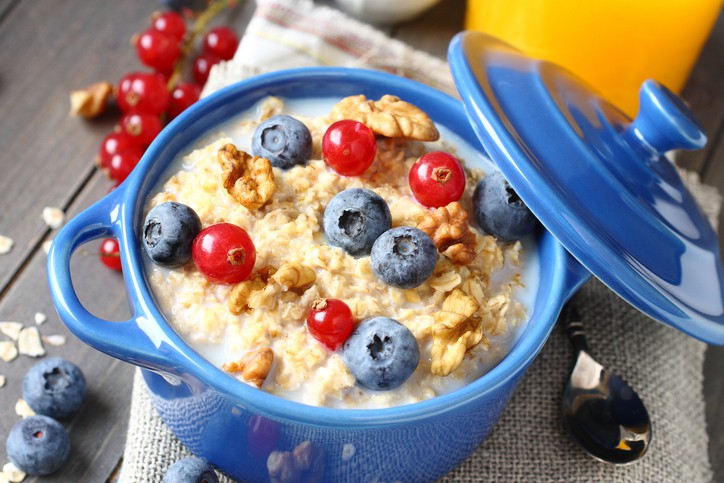Contents:
- Medical Video: Fasting: Reduce Inflammation | Boost Longevity- Thomas DeLauer
- How does fasting alleviate chronic illness?
- 1. Heart disease
- 2. Hypertension
- 3. Type 2 diabetes
- 4. Obesity
Medical Video: Fasting: Reduce Inflammation | Boost Longevity- Thomas DeLauer
Fasting has a myriad of benefits for maintaining health. Starting from losing weight, improving your diet becomes healthier, to reduce the risk of disease. Interestingly, a study reported that in addition to these various benefits, fasting relieves chronic disease and controls the severity of symptoms that appear. Therefore, fasting is often used as therapy for people who have chronic diseases.
What are the symptoms that are relieved by fasting? Consider the following review.
How does fasting alleviate chronic illness?
The National Social Economic Survey (SUSENAS) in 2004 showed that the number of cases of chronic diseases in Indonesia continued to increase. The cause is none other than not an unhealthy lifestyle, which includes smoking, lack of exercise, and eating fatty or all fried foods. Unhealthy lifestyle is a big risk factor for various chronic diseases such as diabetes, hypertension, and cancer. Unhealthy lifestyles also play a role in triggering obesity, aka obesity.
The faster the chronic disease is diagnosed and the symptoms are managed, the life expectancy of the sufferer and the quality of life will improve. In addition to medical treatment, fasting in Ramadan is a good opportunity for Muslims to restore an unhealthy lifestyle. That way, fasting alleviates chronic diseases and their symptoms. Then, what are the chronic poets who can be managed by fasting?
1. Heart disease
People with heart disease have a high risk of early death because their heart is no longer functioning properly. Reporting from the Cleveland Clinic, heart health specialist Haitham Ahmed, MD, revealed that fasting helps change diet and the quality of food consumed every day.
These changes can cause changes in the body's metabolism, and can have an effect on heart health. Reduced food intake while fasting while you are still active as usual will force the body to burn fat reserves, not again from blood sugar, to be used as an emergency energy source. Burning these fat reserves can help blood vessels and the heart work more effectively to pump and drain blood.
In the end, choosing a better portion and diet during fasting can help lower blood pressure, reduce cholesterol, and reduce / maintain ideal body weight. If the heart works better, also blood pressure and cholesterol levels are kept normal during fasting, then the frequency of appearance and severity of heart disease symptoms can be reduced.
That is why many health experts argue that people with heart disease are safe to fast. Provided that you must continue to undergo treatment according to the doctor's advice, while maintaining nutritional intake of food from healthy sources, getting enough rest, and preventing dehydration by fulfilling the water needs when the dawn is breaking.
2. Hypertension
In people with high blood pressure, their heart must work harder to pump blood compared to normal people. This can cause heart fatigue which can then cause enlargement and thickening of the heart muscle, to heart failure. High blood pressure can also increase the risk of brain blood vessel rupture, aka hemorrhagic stroke.
This is where the role of fasting alleviates chronic diseases originating from hypertension. How can? During fasting, salt intake as a mastermind that triggers an increase in blood pressure becomes reduced.
Fasting also reduces the body's electrolytes so that blood pressure can decrease. Fasting in Ramadan helps reduce systolic blood pressure from 132.9 ± 16 mmHg to 129.9 ± 17 mmHg, although there is no significant decrease in diastolic blood pressure.
In addition, weight loss that occurs during fasting also lowers blood pressure. Every time you lose 1 kg of weight, you can lower blood pressure to around 1 mmHG.
3. Type 2 diabetes
Fasting can help reduce high blood sugar in diabetic people by regulating food intake and the right time. Research conducted by Shariatpanah shows that changes in diet twice a day during Ramadan can improve insulin resistance in diabetics.
Remember, the key is wiser in choosing a food menu at dawn and breaking fast. Because, people with diabetes must be very aware of complications such as hyperglycemia or hypoglycemia during fasting.
People with diabetes are encouraged to consume foods that produce energy slowly, such as wheat, beans, and brown rice, as well as avoid foods with high saturated fat. Also make sure the fluid intake when fasting is sufficiently well after sahur, when breaking fast, and after tarawih.
Fasting is a way for you to improve and maintain a healthy lifestyle. but you still have to consult with your doctor about setting a schedule for taking diabetes medication and its dosage during the fasting month, as well as consultations related to exercise routines during the fasting month if you have a chronic illness.
4. Obesity
Obesity is the root of chronic diseases, such as diabetes, stroke, heart disease, cancer, and other dangerous diseases. One way to overcome this disease is by diet, including fasting.
An animal-based study led by Hoon Ki Sung of Hospital for Sick Children in Canada shows that fasting can help obese people improve their condition, as reported by Science Daily.
Fasting triggers the body's immune system to release white blood cells in fat cells to fight inflammation. The type of white blood cell called an anti-inflammatory macrophage actively stimulates the burning of fat stored in the body. This can help reduce excessive weight.
Keep in mind, you also still need to pay attention to the portion of meal at dawn and breaking and the selection of food menus from healthy sources. Avoid fatty and oily foods, and multiply eating high-fiber fruits and vegetables and nuts. Don't forget to exercise regularly to cut excess fat.
















